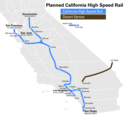The 2011 census results show that London (the Greater London Authority, which is Inner and Outer London) experienced its greatest percentage population growth in more than 100 years (1891 to 1901). London added nearly 1,000,000 new residents since 2001. That growth, however, is not an indication that "people are moving back to the city." On the contrary, National Statistics data indicates that London lost 740,000 domestic migrants between 2001 and 2011. read more »
London Olympics 2012: Let the Games End
Why does anyone persist with the Greek mythology that the Olympics are an engine of economic development, sportsmanship, or peace on earth? London is spending $15 billion on the hope that it can sell enough tickets to synchronized swimming, and earn enough from television ads, to cover the costs of the 30,000 rent-a-cops and military personnel being deployed in the spirit of Olympic harmony. read more »
State of Chicago: The New Century Struggle
This is the second installment in my “State of Chicago” series. Read part one here.
Last time I looked at Chicago’s 70s and early 80s horrible struggles followed by rebirth and robust out-performance during the 1990s. Today we turn our attention to the first decade of the 21st century. During the 2000s, Chicago experienced a bit of a two-track performance. Parts of the urban core continued to grow robustly, fueled by the real estate bubble and perhaps the greatest urban condo building boom in America. read more »
The New Geography Of Success In The U.S. And The Trap Of The 'New Normal'
This year’s presidential election is fast becoming an ode to diminished expectations. Neither candidate is advancing a reasonable refutation of the conventional wisdom that America is in the grips of a “new normal” — an era of low growth, persistently high unemployment and less upward mobility, particularly for the working class. read more »
Housing Affordability Protests Occurring in "Livable" Hong Kong, Not "Sprawling" Atlanta
The Economist has published another in its city rating series, under the headline "The Best city in the World." This one was the result of a contest examining ways to elaborate on its rating system. The winner, Filippo Lovato, added a spatial dimension to the ratings, which included a 5 point rating of "sprawl," a pejorative term for the natural expansion of cities (which in this article means urban areas, areas of continuous urban development). read more »
State of Chicago: The Decline and Rise
I’ve had it in my head for over a year now to do an in-depth exploration of Chicago, a project I’ve called “State of Chicago.” This is the first a series of pieces that expand on the themes in my recent article “The Second-Rate City?”
First, I’d like to list three reasons why I wrote that piece: read more »
Are Millennials the Screwed Generation?
Today’s youth, both here and abroad, have been screwed by their parents’ fiscal profligacy and economic mismanagement. Neil Howe, a leading generational theorist, cites the “greed, shortsightedness, and blind partisanship” of the boomers, of whom he is one, for having “brought the global economy to its knees.” read more »
China's French Connection
No two countries would appear more divergent than France and China, especially in the age of Eurozone collapse. One country represents the Asian future, while the other is the capital of the failed, if diverting, old world.
The French recently elected a socialist president and assembly on the basis that everyone should share the country’s deficits and decline. The Chinese, meanwhile, have enough surpluses to buy out the European Union, should they wish to exchange their EU debts for an equity stake. (Maybe they will choose to have Paris shipped east in boxes?) read more »
How Fossil-Fuel Democrats Became An Endangered Species
In an election pivoting on jobs, energy could be the issue that comes back to haunt Barack Obama and the Democratic Party as the cultural and ideological schism between energy-producing Republican states and energy-dependent Democratic ones widens. read more »
High Speed Rail Advocates Discredit Their Cause - Again
Is there any high speed rail boondoggle big enough to make rail transport advocates reject it? Sadly, for all too many of them, the answer is No, as two recent developments make clear.
The first is in California, where the state continues to press forward on a high speed rail plan for the state that could cost anywhere from $68 billion to $100 billion. Voters had previously approved $10 billion in bonds for the project, but as the state's economy and finances have continued to sour – including multiple major cities going bankrupt – the polls have turned against it, and with good reason. read more »





















